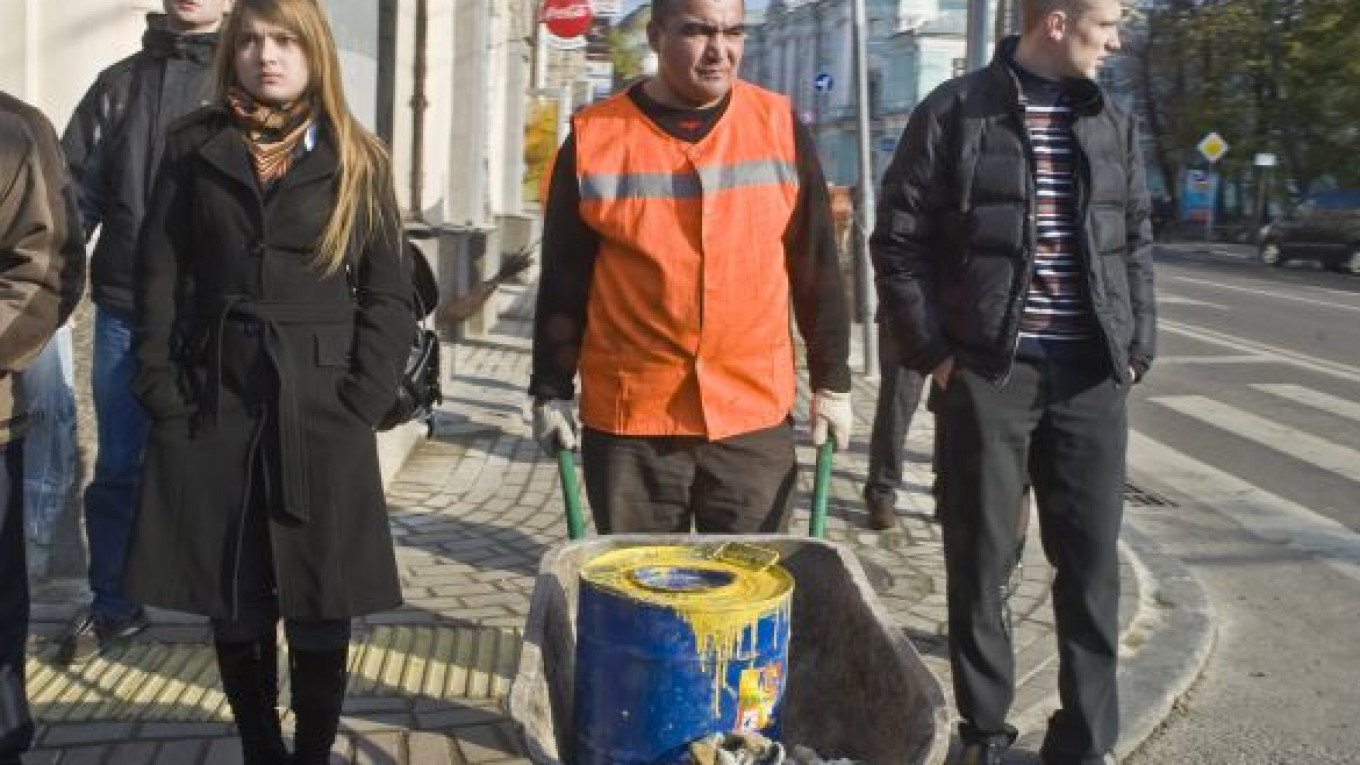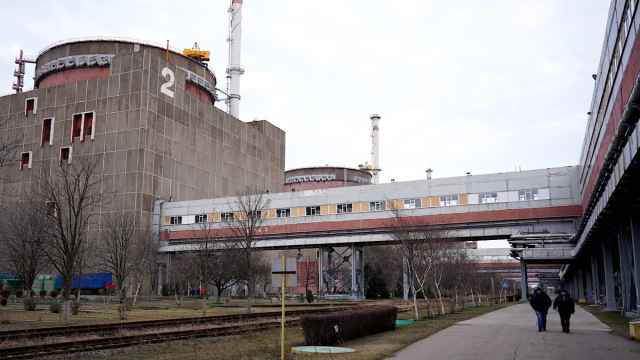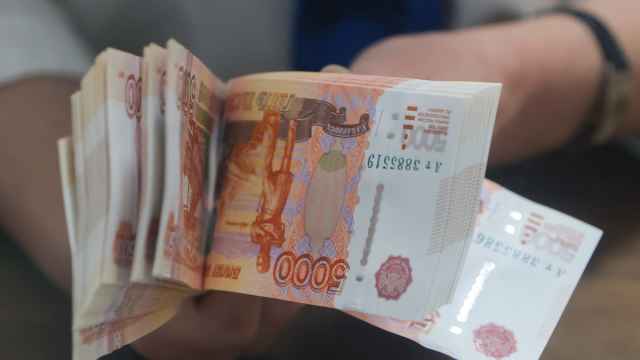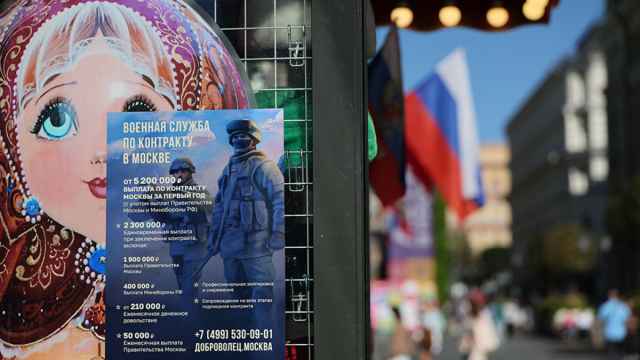The imprisonment of Russian pilot Vladimir Sadovnichy in Tajikistan earlier this month sparked a roundup of Tajik migrant workers, whom officials said were diseased and criminally inclined.
Now that Sadovnichy has been released, that rhetoric has softened, but Tajik community leaders on Wednesday were cautious to declare that the police raids — which have netted more than 1,700 migrants, overwhelmingly Tajiks — are over.
“The detentions trailed off after the release, but now they appear to be ramping up again,” Karomat Sharipov of the Tajik Migrant Labor group told The Moscow Times by telephone Wednesday.
Sharipov’s remarks appear to contradict a statement by Mukhammad Amin, head of the Russian Federation of Migrants, who told Interfax on Monday that the raids had stopped. Repeated calls to the Russian Federation of Migrants on Wednesday evening went unanswered.
During the height of the roundup, President Dmitry Medvedev denied that a police campaign against Tajik migrants was under way, but insiders confirmed the link in numerous comments to media.
Gavkhar Dzhurayeva of the Migration Law Center said it was unclear whether an explicit order was given to detain migrants, but noted that police precincts with a history of targeting migrants had appeared to accelerate their efforts.
In 2010, an offhand comment from newly appointed Mayor Sergei Sobyanin sparked an unauthorized police crackdown on street kiosks.
This time, police action was bolstered by provocative remarks from top officials.
The country’s chief sanitary doctor, Gennady Onishchenko, who once banned Georgian and Moldovan wines under health pretexts during periods of heightened tension with those countries, said Tajik migrant workers brought diseases and should be temporarily banned.
Konstantin Romodanovsky of the Federal Migration Service said Tajiks were responsible for the majority of crimes committed by migrants.
But Onishchenko was silent Wednesday, and Romodanovsky stressed that migrants — contrary to periodic claims by the Interior Ministry — do not commit a disproportionate number of crimes.
“The level of crime [among migrants] has remained at 3.4 percent,” he said, Interfax reported. He added that Russia loses 40 billion rubles ($1.3 billion) annually in unpaid taxes from illegal migrants .
Fresh out of a Tajik prison, Sadovnichy told reporters that the deportations were unjust.
“There’s no need to bother innocent people. They came here not for a good life, but to feed their families. Their deportation won’t have good consequences,” he was quoted as saying on the Tajik Migrant Labor group web site.
The deportation of those Tajiks detained since the crisis began will continue, Romodanovsky told reporters Wednesday.
Sadovnichy and Alexei Rudenko, of Estonia, were arrested in March during a refueling stop in Tajikistan on their way to Moscow from Afghanistan. Tajik officials said they had no right to be in the country and that a spare, nonworking engine they had with them was contraband.
The pair was sentenced to 8 1/2 years earlier this month, but they were released by Tajik authorities under intense pressure from Russia.
A Message from The Moscow Times:
Dear readers,
We are facing unprecedented challenges. Russia's Prosecutor General's Office has designated The Moscow Times as an "undesirable" organization, criminalizing our work and putting our staff at risk of prosecution. This follows our earlier unjust labeling as a "foreign agent."
These actions are direct attempts to silence independent journalism in Russia. The authorities claim our work "discredits the decisions of the Russian leadership." We see things differently: we strive to provide accurate, unbiased reporting on Russia.
We, the journalists of The Moscow Times, refuse to be silenced. But to continue our work, we need your help.
Your support, no matter how small, makes a world of difference. If you can, please support us monthly starting from just $2. It's quick to set up, and every contribution makes a significant impact.
By supporting The Moscow Times, you're defending open, independent journalism in the face of repression. Thank you for standing with us.
Remind me later.






